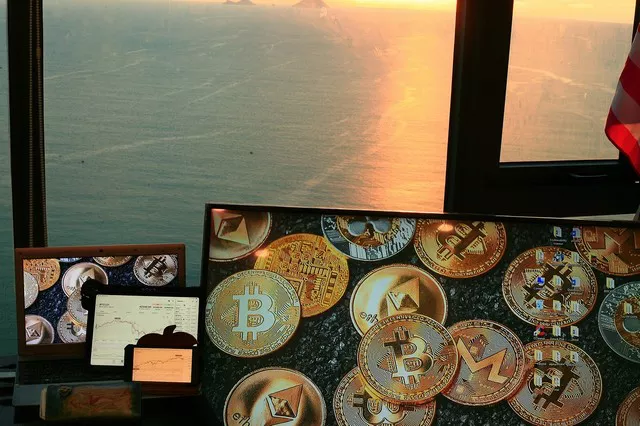Futures trading, a financial practice that involves making contracts to buy or sell assets at a predetermined price on a specified future date, has been a subject of controversy within the Islamic finance community. While modern financial markets offer various investment opportunities, Islamic scholars have raised concerns about the compliance of futures trading with Islamic principles.
Understanding the Basics of Futures Trading
Before delving into the reasons behind the prohibition of futures trading in Islamic finance, it is essential to understand the fundamentals of this financial practice. Futures contracts, also known as “forward contracts,” are derivative instruments that derive their value from an underlying asset, such as commodities, stocks, or currencies. These contracts obligate the parties involved to buy or sell the underlying asset at a predetermined price on a future date.
Ambiguity and Uncertainty
One of the primary reasons why futures trading is considered haram in Islamic finance is the presence of ambiguity (gharar) and uncertainty (maysir). Islamic finance principles emphasize transparency and clarity in transactions. Futures contracts often involve a degree of uncertainty regarding the future price of the underlying asset. This uncertainty can be seen as a form of gambling, which is strictly prohibited in Islam.
Speculation vs. Real Economic Activity
Islamic finance encourages investment in activities that contribute to the real economy and society’s well-being. Futures trading, however, is often criticized for its speculative nature. Traders in futures markets aim to profit from price fluctuations without actually owning or using the underlying asset. This speculative aspect of futures trading is seen as detrimental to economic stability and societal welfare, making it incompatible with Islamic finance principles.
Riba (Usury) Concerns
Another significant concern surrounding futures trading in Islamic finance is the potential for the presence of riba, or usury. Riba is forbidden in Islam because it involves earning money from money without any real economic activity. In some cases, futures contracts may involve interest payments or financing charges, which could be considered riba. This financial element can taint the purity of the transaction, making it haram.
Lack of Tangibility
Islamic finance places importance on the concept of tangibility and real assets. Futures trading, in contrast, often involves trading contracts for intangible assets or financial instruments, such as stock market indices or currency pairs. This lack of tangibility is viewed unfavorably in Islamic finance, as it deviates from the principles of asset-backed transactions.
Zero-Sum Nature
Futures trading is a zero-sum game, meaning that for every gain made by one party, an equal loss is incurred by another. Islamic finance principles encourage wealth creation and the equitable distribution of wealth. The zero-sum nature of futures trading is seen as contradictory to these principles, as it does not create additional value but merely redistributes existing wealth.
Excessive Risk
Futures trading carries a high degree of risk due to its leverage and the potential for significant price volatility. Islamic finance encourages responsible risk management and prohibits excessive speculation that could lead to financial instability. The high-risk nature of futures trading is viewed as problematic within the Islamic framework, as it can lead to financial hardship for individuals and society.
Lack of Delivery
In many futures contracts, physical delivery of the underlying asset rarely occurs. Instead, most futures traders offset their positions before the contract’s expiration by entering into an opposite trade. This lack of actual delivery is seen as a departure from the principles of Islamic finance, which generally require the physical possession and ownership of assets.
Ethical Concerns
Islamic finance places a strong emphasis on ethical considerations and social responsibility. Some forms of futures trading, particularly in commodities, have faced criticism for contributing to price volatility, which can have adverse effects on vulnerable populations. This ethical concern further complicates the compatibility of futures trading with Islamic finance principles.
Conclusion
In conclusion, the prohibition of futures trading in Islamic finance is rooted in several key concerns, including the presence of ambiguity and uncertainty, the speculative nature of the practice, potential riba elements, lack of tangibility, the zero-sum nature, excessive risk, lack of delivery, and ethical considerations. Islamic finance aims to promote transparency, economic stability, and ethical investment, and these concerns make futures trading a contentious issue within the Islamic finance community. While some scholars may argue for a more nuanced approach to futures trading in compliance with Islamic principles, the overall consensus remains that it is a financial practice fraught with challenges that make it difficult to reconcile with Islamic finance’s core values.

